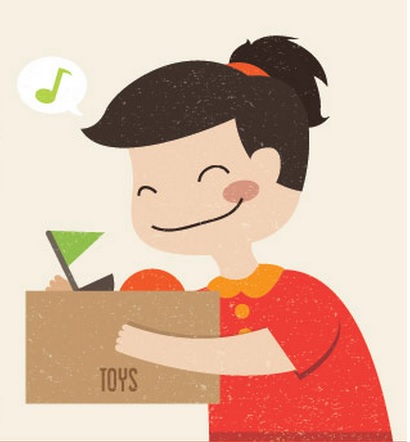Sometimes getting children to pick up their toys, brush their own teeth or keep track of and turn in their homework can seem like the most challenging task imaginable. For young people to take on certain tasks without having to be asked, they have to learn values such as responsibility in a natural way. Children learn responsibility from different sources, but their parents, teachers and mentors often have major influences over them. If you take a proactive role with your children, there is a greater chance they will learn to be responsible over time.
Little Helpers
Start the process of teaching your children responsibility at an early age by getting them involved when you are washing your car, cooking dinner, sweeping the floor, working on your car or doing another household task. Make sure to give them tasks that aren’t too difficult at first and gradually progress to more challenging jobs as they grow older and more responsible. Have a good attitude when you are doing household tasks with your children so they look at doing chores as a positive experience.
Teaching Children
Gradually teach your children how to do important tasks that they will need to know, such as doing laundry, cooking for themselves or taking care of the maintenance tasks on their car. Don’t let them try to get you to do it for them. Instead teach them how to accomplish tasks using different steps.
Structure
Although you don’t want to force structure on your children, having a regular schedule can help them to learn how to manage their time. As they grow up, they will start to think about what they need to do without being asked, an important part of responsibility.
Extracurricular Activities
Being involved in after-school activities, such as volunteering or playing sports, can help children to learn to be responsible. Children who volunteer at the Brimley-Lawrence Animal Clinic or any other Toronto spay neuter clinic can learn not only responsibility, but the importance of giving up your free time to help others.
Playing on a football, baseball or basketball team will be expected to follow certain regulations and meet expectations set by volunteer coordinators or coaches. This is a great way for your young one to learn the importance of listening and understanding others with are in charge and help them gain a working knowledge of working on a team and how to work with others.
Chores
Many parents instill responsibility in their children by having them do regular chores. If you give your children tasks to complete every day or week, rewarding them with money, treats or privileges will likely make them more motivated to complete the tasks. Doing these chores will become so routine that they will most likely do them automatically when they get older.
Teaching your children responsibility is a process that takes time. You don’t want to lecture or push lessons on them because they likely will rebel against you. Making certain tasks and chores fun and part of their routine can help them to learn to be responsible without forcing values upon them.
Earnest Parenting: help for parents who want responsible kids.


